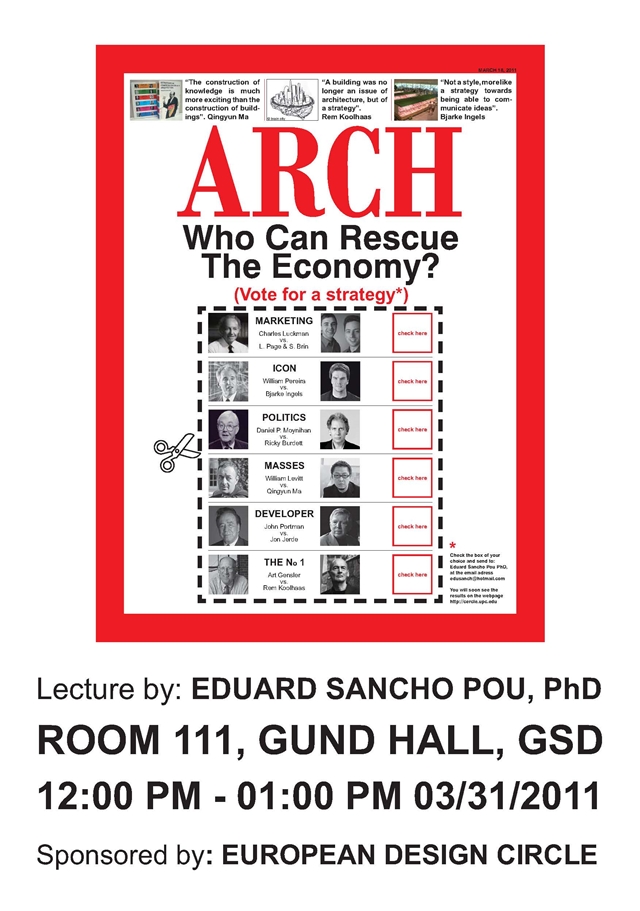Eduard Sancho Pou, "Architecture Strategies (marketing, icons, politics, the masses, the developer, the No 1...)"
Public Lecture
» 12:00 PM - 01:00 PM 03/31/2011
Rm 111, Gund Hall GSD Harvard University
This event is free and open to the public. Sponsored by the European Design Circle student group.
Dr. Eduard Sancho Pou has been working as a construction engineer since 1996 and as an architect since 2002. He recently earned his Ph.D. from the Architectural Projects Department at the Polytechnic University of Catalonia with the thesis "Architecture Strategies (marketing, icons, politics, the masses, the developer, the No. 1...)".
The thesis studies the strategies used by architects to achieve commissions, sell projects and erect buildings. Although their modus operandi might seem mere marketing techniques - and some actually are - we must face the fact that economics set the conditions for each stage of a project - even the stage before the preliminary sketches - and determine the final result to a lesser or greater extent.
Selling strategies are not taught in school, since it has always been considered that architects could not sell themselves. Nor are they discussed among practicing professionals, since no one is willing to transmit his recipes for success. Therefore, there is no specific bibliography regarding this matter, although architects have always been excellent salesmen for ideas.
Sancho Pou used his doctorate as a way to delve into his professional practice. He is currently the head of an architecture studio where he combines his work as an architect with his strategic consultancy activities.
He was previously the director of Galeria BCA (Barcelona Centre Arquitectura), where he organized architecture exhibitions, colloquia and conferences attended by international architects, institutions and individuals in the field of culture in general. He has also been an architectural consultant with the Swiss multinational Holcim, for the announcement of the Holcim Architectural Awards.
Eduard Sancho Pou is currently a finalist for a Graham Foundation Grant (2011).





